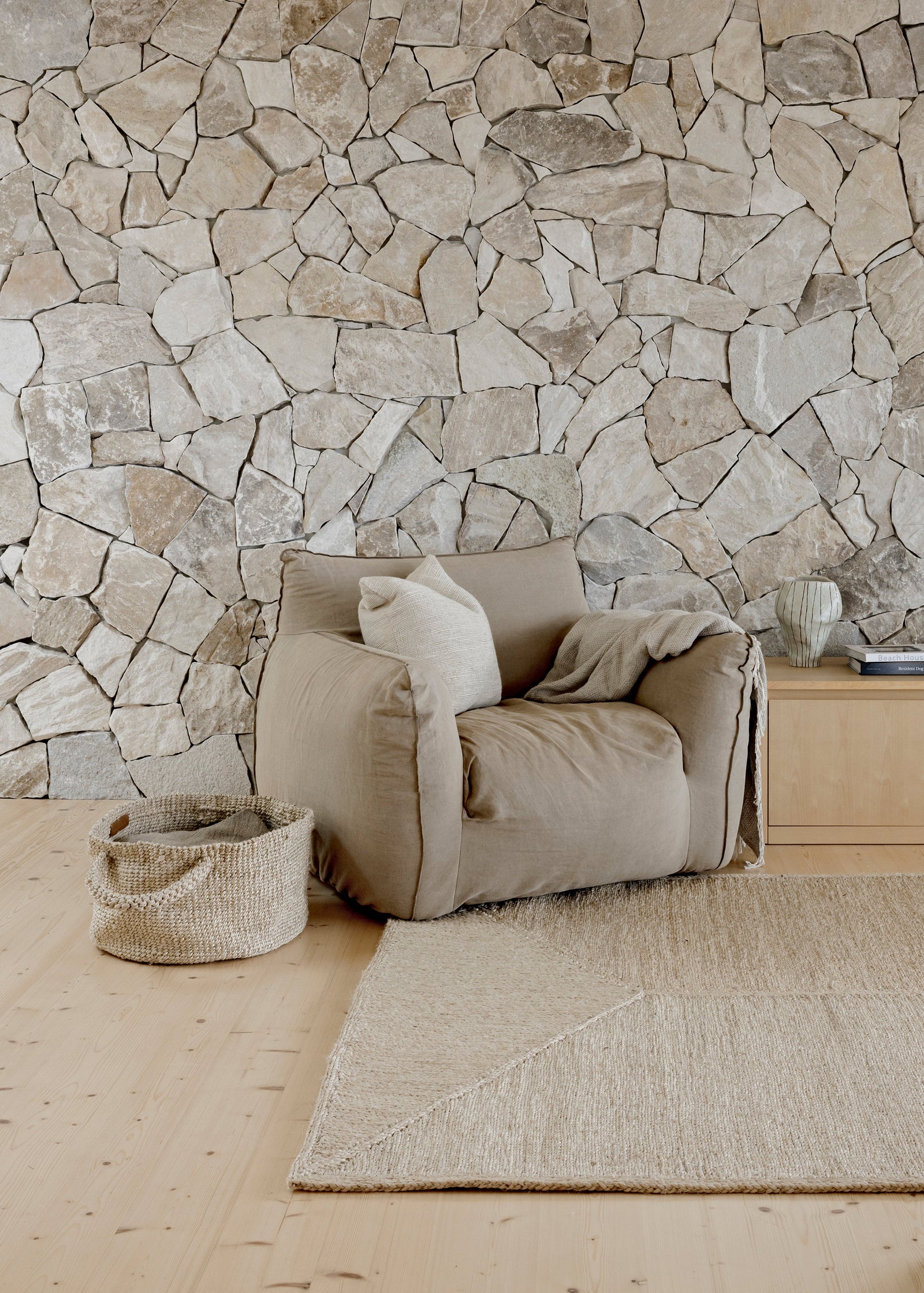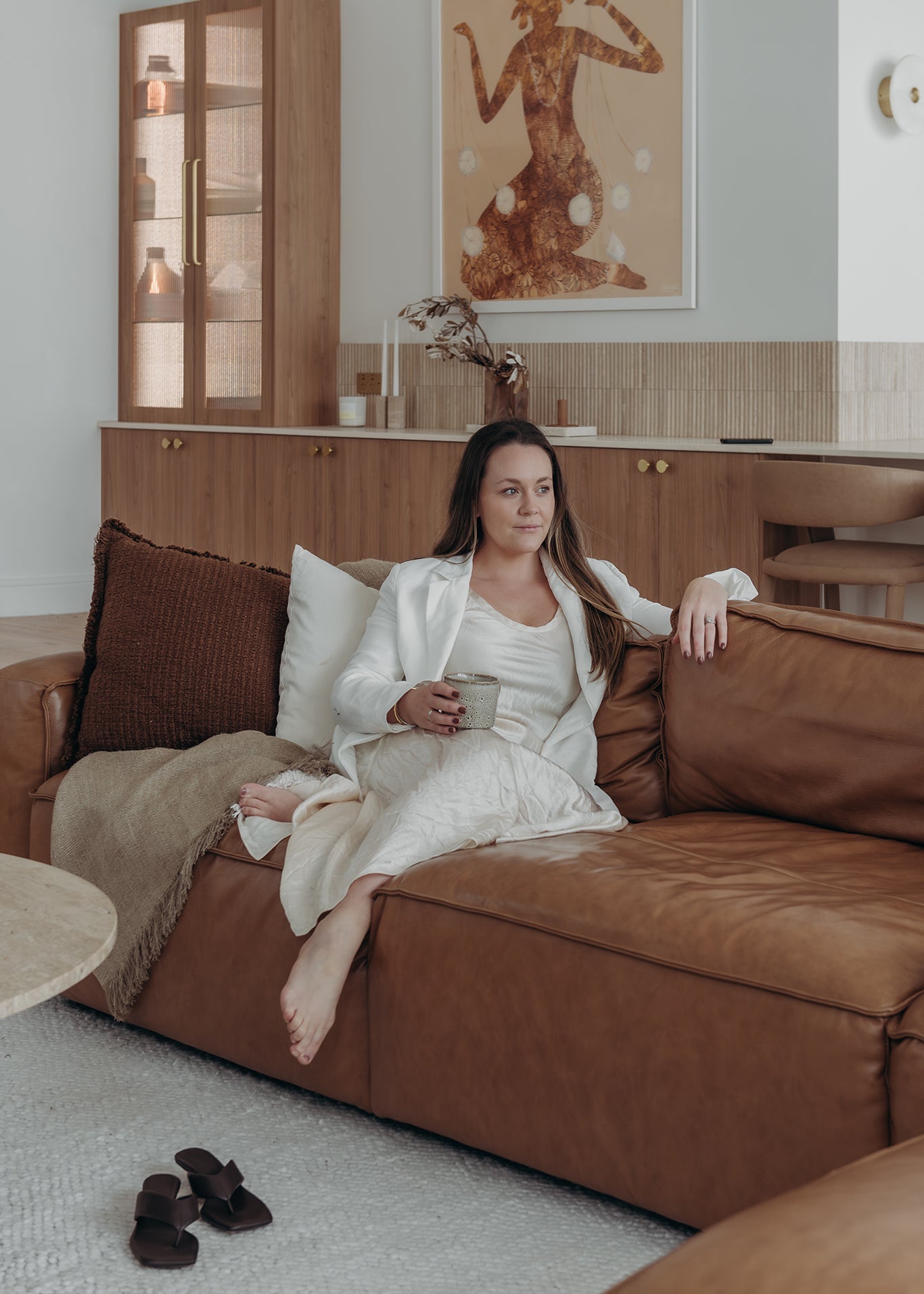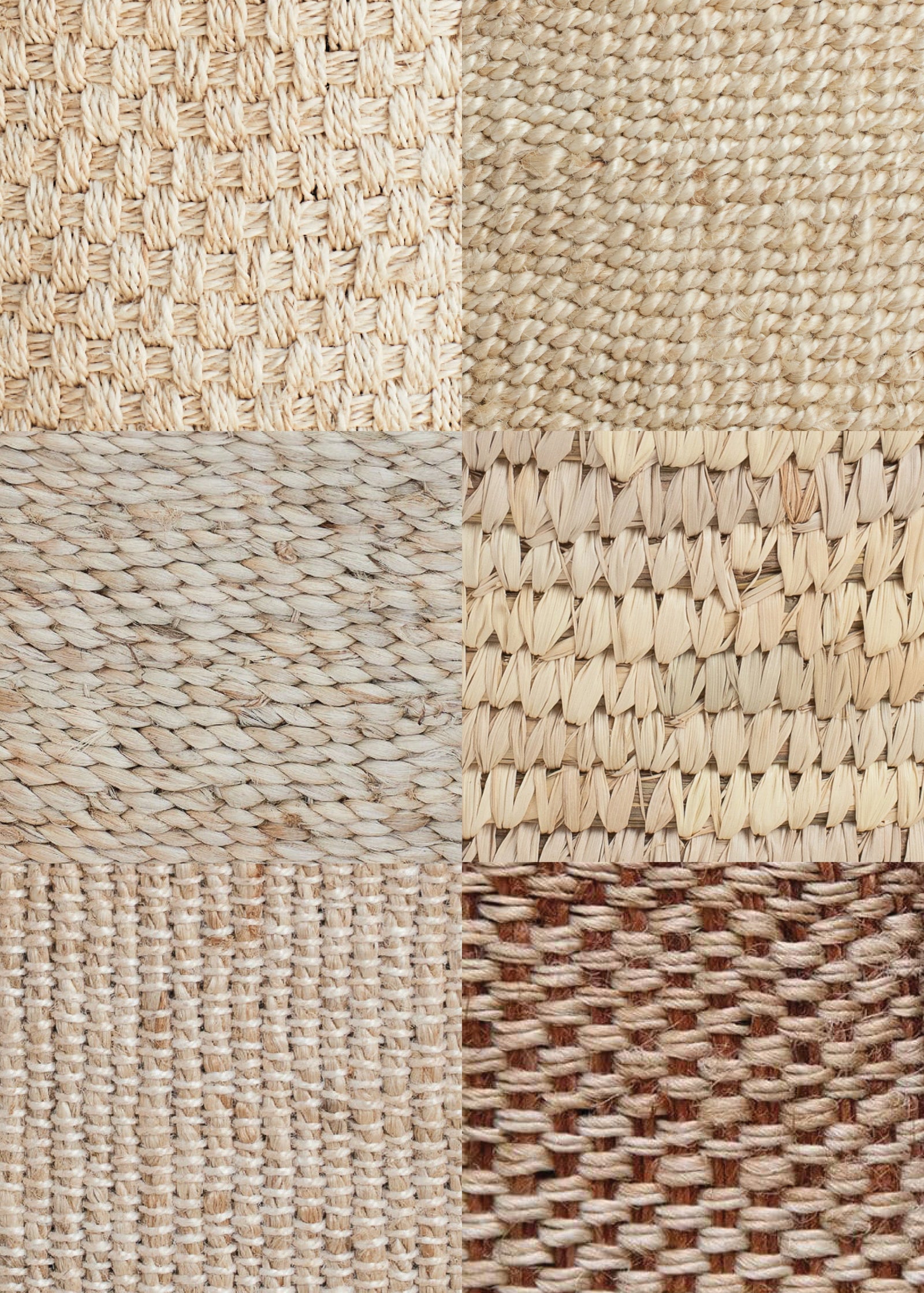Wall Art
Baskets
Rugs
TABLEWARE
Textiles
LIGHTING
DECORATIVE
BAGS
Fashion Revolution 2020 - 3 Influential Women Talk Ethical Fashion Choices

Thinking about the people who make our clothing and accessories
As much of the world engages with Fashion Revolution 2020 from some form of isolation, the focus of this year’s event has taken on new meaning. In addition to considering four key themes – consumption, composition, conditions and collective action – thoughts have turned to how the clothing and textile workers who produce our clothing and accessories might fare as a result of the wide-sweeping changes prompted by the Coronavirus epidemic.
The Dharma Door works with Fair Trade artisans to design and produce our collection of natural bags and totes. The women who hand make these fashion items are primarily based in remote, rural communities throughout Bangladesh. Bloomberg recently estimated that 1089 garment factories in the country have had large fashion orders cancelled due to the global shutdown - a loss in income of more than $1.5 billion that has resulted in significant job losses for workers who are already vulnerable.
By comparison, the women who make our collection of bags continue to fulfil our orders by working from home. Their treatment, wages and working conditions have always been important to us, which is why we have always opted to also work with not-for-profit NGO partners who safeguard their treatment, working conditions and wages. These partners are Fair Trade accredited, a rigorous testing system that evidences the range of other life-changing support they offer to some of society’s most disadvantaged people.
It is now more important than ever to stop and think about the people behind our products. It seems apt to ask one of the key questions prompted by the annual call-to-arms: ‘Who made your clothes?’ and consider how we can all make more ethical clothing options in the future. In this spirit we asked three change makers in the fields of sustainability and ethical fashion to share how ethical trading practises and the treatment and security of workers influence their fashion choices. Here’s what Kelley Sheenan of Peppermint Magazine, Kira Simpson of the Green Hub and Jasmine Mayhead of Ethical Made Easy had to say.
 Kelley Sheenan, Peppermint Magazine
Kelley Sheenan, Peppermint Magazine
'Who made my clothes?' has always been a question that’s influenced my work and my buying choices, long before the Rana Plaza disaster brought it to the attention of the world. There are multiple elements to the sustainable fashion equation, with each aspect being equally as important as the other. From the types of textiles garments are made of and how they are produced or grown, the carbon footprint of a brand and its impact on the climate crisis, to the conditions of factories and the rights of the workers making our clothes, there are often a myriad choices for us as consumers to wade through.
I started my journey with Peppermint after becoming aware of the atrocities happening in the fashion industry with regard to the (mis)treatment and security of garment workers, so this has always been a value close to my heart that helps steer my choices. However, transparency (or lack thereof) from brands can make this difficult to navigate at times – we’re often far removed from supply chains, as are many brands themselves. Fashion Revolution has been instrumental in bringing this question to the forefront, and it will be a crucial one once we sift through the COVID-19 aftermath to see how many brands have fared.
We may feel that our own current coronavirus circumstances are unbearable, but I dread to think what some of the world’s poorest communities are going through. Many workers were already in a precarious position, and I can only imagine that with many factories closing and businesses folding, the pandemic will have a far-reaching impact in the fashion industry: from the workers and producers to the companies and consumers. While it’s hard to know at this stage what the devastating effect will be – not just to the fashion industry, but to the world at large – it’s becoming clear that the slowing down and halting of many industries has given the natural world and our environment some breathing space. I can only hope that, when we reemerge, the ‘rebuilding’ process of this new world will come from a place of compassion and forward-thinking innovation alongside culturally traditional practices, in order to create an economically and environmentally sustainable outcome for us all.
 Kira Simpson, Founder of The Green Hub
Kira Simpson, Founder of The Green Hub
We’re so disconnected from our clothes. Until five years ago, I was too. I paid no thought to where that cute dress I wanted for the weekend came from. What it was made from. How it was made. Who made it. I had no clue. Then I fell down the ‘rabbit hole’ of ethical fashion and it’s that ‘once you know’, you can’t ignore it.
Shopping as a hobby lost its appeal to me years ago and now, before I buy anything new, it’s almost an obsession to research the brand’s policies and practices. Can they trace their supply chain? Do they pay their workers a living wage? Are their factories regulated, audited? Can they measure their environmental impact and what steps are they taking to reduce it?
Even calling yourself a sustainable or ethical label doesn’t automatically appeal to me anymore. There’s plenty of ethical but poorly made fast fashion being pumped out right now. Not to mention greenwashing, with brands jumping on what they feel is a trend. Manufacturing ethically, treating garment workers fairly, considering the environmental impact - they’re no longer a point of difference. It’s literally the bare minimum fashion brands should be striving for. Why should I buy your bikini make with recycled Econyl when you can’t tell me anything about who made it?
So yes, the treatment of the people who make out clothes, alongside environmental impact and quality, influence my fashion choices. How can I wear something that’s supposed to make me feel good – because fashion is always an emotional choice – knowing someone, somewhere is paying the price of the quality of their life? And I firmly believe in the power of voting with our wallets.
 Jasmine Mayhead, Founder of Ethical Made Easy
Jasmine Mayhead, Founder of Ethical Made Easy
The people who make our clothes are right at the forefront of my fashion choices, though they never used to be. For me it used to always be about the latest style at the cheapest possible price. That was until I watched The True Cost documentary the day after I haggled the price down of a bag in Cambodia. The bag sells in stores in Australia for over $100 and I bartered it down to $9 as this is something that society often teaches you is necessary when traveling to foreign countries.
Now I question why - especially when the quoted price is never something that I will notice in a year’s time. When I looked at the bag on my floor and realised that the only connection I had to it was how much I paid for it – rather than knowing anything about where the fabric came from, how it was dyed, who made it and what the conditions they worked in were like – it hit me like a tonne of bricks. Hence Ethical Made Easy was born.
Over the last nearly four years I’ve been interviewing the founders of incredible labels who dream of a better world that prove that business and doing good can in fact go hand in hand. Now, after nearly four years of being able to connect the dots between the things I own, the people who make them and the founder’s who believed something different could be possible, it’s made ethical trading practices and their treatment of workers the forefront of what I do on a daily basis.
When someone says'I love your [insert amazing piece here]' it’s the most incredible thing to be able to say exactly where it comes from, and how it has impacted the lives of others, rather than stating how much it cost. Once you’ve experienced that feeling of being able to tell the story behind what you own, you begin to buy less, but so much better.
 How to be involved in Fashion Revolution 2020 and beyond
How to be involved in Fashion Revolution 2020 and beyond
Affectionately known as 'Fash Rev' this event is based on the premise that your voice can change everything. It claims that "Since Fashion Revolution started, people from all over the world have used their voice and their power to tell brands that things must change. And it’s working. The industry is starting to change. More brands are being open about where their clothes are made. More manufacturers are making their factories safer. More producers are being seen and heard."
To become involved, ask brands #whomademyclothes?
1. Send an email to a brand
2. Use your voice on twitter
3. Post on instagram
4. Host an event
And stop and consider the people behind a product the next time you purchase. Together, we can all make a difference!

Also in Journal
Notify me when available
We will send you a notification as soon as this product is available again.
We don't share your email with anybody










 Kelley Sheenan, Peppermint Magazine
Kelley Sheenan, Peppermint Magazine Kira Simpson, Founder of The Green Hub
Kira Simpson, Founder of The Green Hub Jasmine Mayhead, Founder of Ethical Made Easy
Jasmine Mayhead, Founder of Ethical Made Easy How to be involved in Fashion Revolution 2020 and beyond
How to be involved in Fashion Revolution 2020 and beyond

